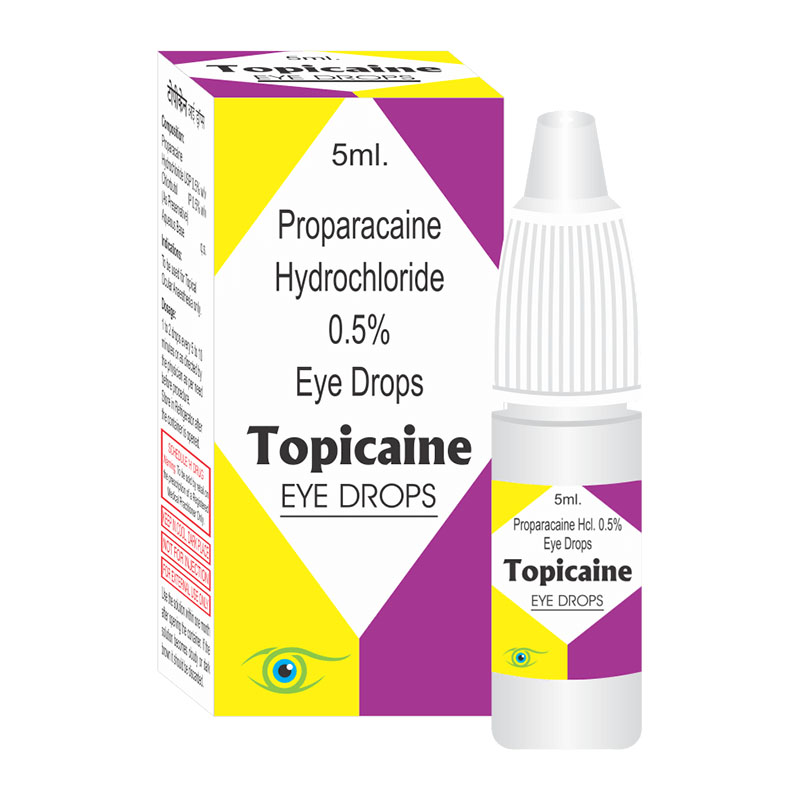Topicaine (Eye Drops)
“A TOPICAL ANESTHETIC, PRODUCING NO SENSATION EFFECTIVELY AND RAPIDLY”
Composition:
Proparacaine Hydrochloride 0.5%
Topicaine contains Proparacaine Hydrochloride 0.5% that works as a rapid topical anesthetic for different eye procedures.
Mode of Action:
Proparacaine in Topicaine works as an antagonist towards the function of voltage gated sodium ion channels in the nerves, thus rendering the production of action potential/Nerve-Impulse Conduction. It helps in stabilizing the membrane potential by inhibiting the influx of sodium ions in the state of depolarization (Sudden change in membrane potential, making the internal environment of the membrane positive). The action conduction of the stimulus is transported when a threshold limit of depolarization is achieved by more and more influx of sodium ion. Thus it increases the threshold value for the electrical stimulus, ultimately blocking the conduction of the signal of pain to the brain.
- Perform a contact/applanation tonometry.
- Corneal or Conjunctiva procedures that require topical anesthetic such as Cataract Extraction
- Remove small foreign objects from the uppermost layer of the cornea or conjunctiva and sutures from the cornea
- Procedure of conjunctival scraping in diagnosis and gonioscopic examination
- The drug appears to be safe for use in patients sensitive to other local anesthetics
- For deep anesthesia as in cataract extraction- Instill 1 drop every 5 to 10 minutes for 5 to 7 doses.
- For removal of sutures- Instill 1 or 2 drops, 2 or 3 minutes before removal of stitches.
- For removal of foreign bodies- Instill 1 or 2 drops prior to operating.
- For tonometry- Instill 1 or 2 drops immediately before measurement or as directed by physician
Excessively, topical anesthetics can cause severe and irreversible damage to corneal tissues and even loss of the eye.
Adverse Effect:
- Pupillary dilatation or cycloplegic effects have rarely been observed with proparacaine hydrochloride.
- Instillation of proparacaine in the eye usually produces little or no initial irritation, stinging, burning, conjunctival redness, lacrimation or increased winking. Some local irritation and stinging may occur several hours after the instillation.





